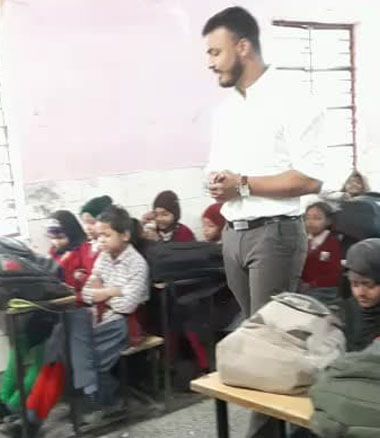SUPPORT FOR GIRLS EDUCATION

Girl's Education
Every Girl Deserves a Chance to Learn
A girl is not a statistic or a piece of property. She’s a child who deserves a future.
Girls the world over face discrimination – just for being born a daughter and not a son. A girls education is less likely to be valued, and she’s more likely to be forced into early marriage, face violence or be stolen by traffickers. Her childhood cut short – her very life and future at risk.
A girl’s education changes everything. An educated girl is more likely to grow up healthy, safe and empowered to determine the course of her life and future. She’ll decide when she’s ready for marriage and children. She’ll likely send her children to school – and even live a longer life.
We understand the importance of education for girl children. We do whatever it takes to ensure every last child has a chance to grow up healthy, educated and safe – her best chance for a bright future.
With your help, we can educate girls who may not otherwise have the chance to learn — changing the course of their lives, their children’s lives and the future of their communities.
Every Last Child Campaign
Save the Children’s Every Last Child campaign aims to reach the most vulnerable children, those left behind by the world’s progress in child health, education and protection — including girls. Too many girls, because of who they are or where they’re born, face unique challenges. Together, we will improve girls education. We will reach every last girl, empowering her to grow up healthy, educated and safe. Free to lead her own life, speak her mind and determine her future.
Skills to succeed
We are directly supporting millions of girls to get the education they need to transform their lives and secure their futures. This means working to ensure free and equal access to quality, safe education for all girls, including in areas affected by emergencies.
We focus our efforts on equality, inclusion and diversity. Our programmes don’t just work in classrooms with teachers, but also include communities, governments, religious leaders, family members and children in order to bring an end to gender inequality in education.
We work with schools and teachers to help make our programmes gender-transformative – so that girls understand they have the right to fully realise their potential and are equally deserving of the skills required to succeed.
